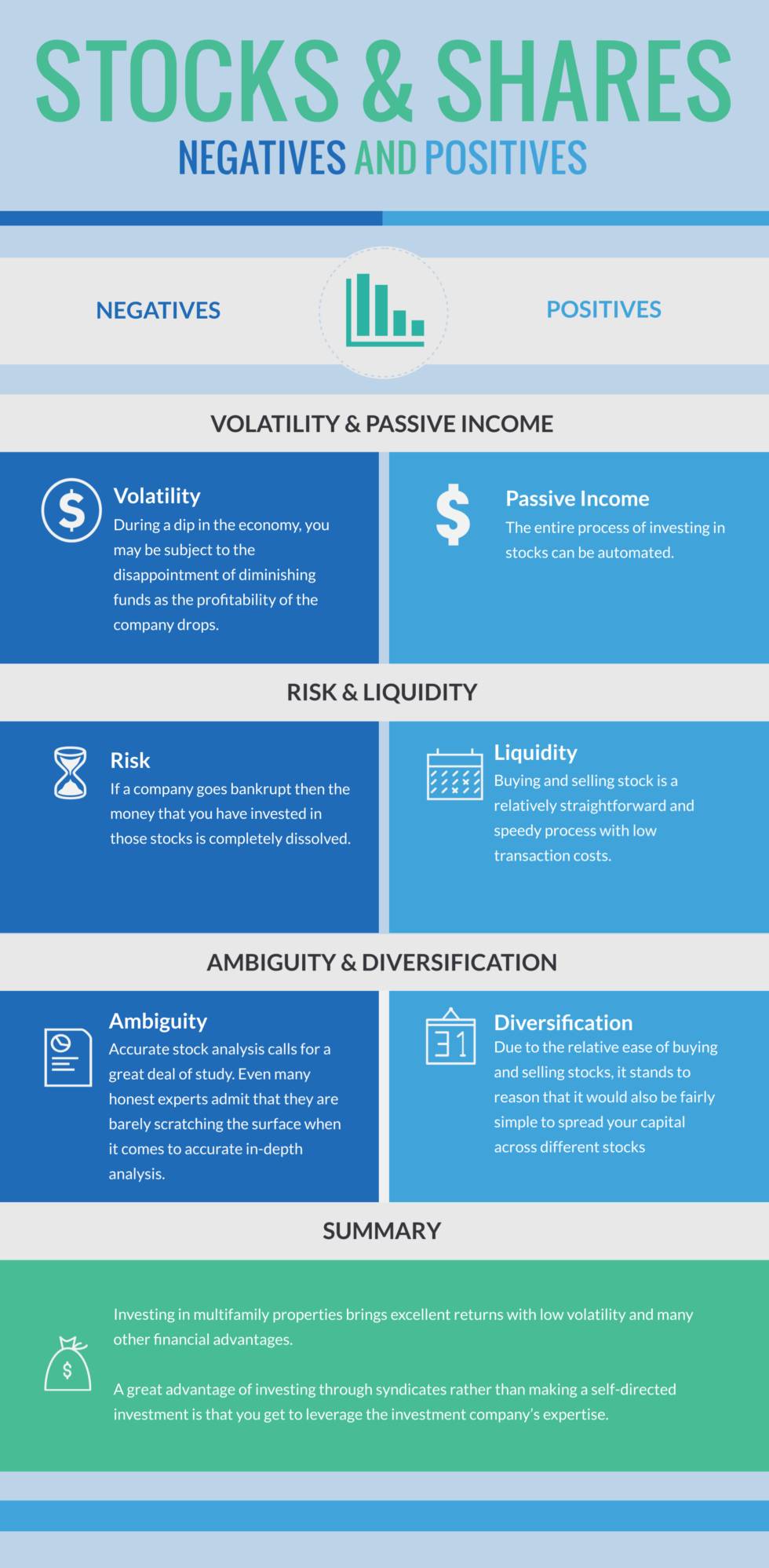
Investing in Real Estate vs. the Stock Market
Of the two types of investing, investing in stocks and shares seems more accessible to many than the world of property investment.
So, why would you consider investing in real estate?
Both types of investment have their pros and cons but the beauty of investing in property lies in the low risk, stability, and predictability of the investment.
You can also add, tax advantages, hedge against inflation and control of investment to the list of positives when it comes to investing in tangible bricks and mortar over stocks and shares.
Let’s take a brief look at some of the pros and cons.
Stocks – Positives and Negatives

When you invest in stocks you effectively own a portion of the company that you are investing in. If that company manages to thrive then the value of your stock rises and you win. When the company struggles, you lose.
Positives
1.Passive Income
The entire process of investing in stocks can be automated.Of course, when it comes to investing in property, you don’t have to be the one dealing with tenants’ problems. When you invest in a property deal that is syndicated by someone else then this means that your real estate investment income will effectively also be 100% passive. You are several steps removed from the day to day management of the property.
2.Liquidity
Buying and selling stock is a relatively straightforward and speedy process with low transaction costs. No tangible asset is being exchanged so the transaction is quick and inexpensive. The process of actually buying and selling stocks is obviously much more straightforward than buying and selling a property which often takes two or three months or more.
3.Diversification
Due to the relative ease of buying and selling stocks, it stands to reason that it would also be fairly simple to spread your capital across different stocks. This is a way to combat the volatility of the stock market where the prices of individual stocks fluctuate daily. Clearly, it would take a much greater investment of capital to diversify your real estate portfolio in the same way.

Positives
1.Passive Income
The entire process of investing in stocks can be automated.Of course, when it comes to investing in property, you don’t have to be the one dealing with tenants’ problems. When you invest in a property deal that is syndicated by someone else then this means that your real estate investment income will effectively also be 100% passive. You are several steps removed from the day to day management of the property.
2.Liquidity
Buying and selling stock is a relatively straightforward and speedy process with low transaction costs. No tangible asset is being exchanged so the transaction is quick and inexpensive. The process of actually buying and selling stocks is obviously much more straightforward than buying and selling a property which often takes two or three months or more.
3.Diversification
Due to the relative ease of buying and selling stocks, it stands to reason that it would also be fairly simple to spread your capital across different stocks. This is a way to combat the volatility of the stock market where the prices of individual stocks fluctuate daily. Clearly, it would take a much greater investment of capital to diversify your real estate portfolio in the same way.
Negatives
1.Passive Income
The entire process of investing in stocks can be automated.Of course, when it comes to investing in property, you don’t have to be the one dealing with tenants’ problems. When you invest in a property deal that is syndicated by someone else then this means that your real estate investment income will effectively also be 100% passive. You are several steps removed from the day to day management of the property.
2.Liquidity
Buying and selling stock is a relatively straightforward and speedy process with low transaction costs. No tangible asset is being exchanged so the transaction is quick and inexpensive. The process of actually buying and selling stocks is obviously much more straightforward than buying and selling a property which often takes two or three months or more.
3.Diversification
Due to the relative ease of buying and selling stocks, it stands to reason that it would also be fairly simple to spread your capital across different stocks. This is a way to combat the volatility of the stock market where the prices of individual stocks fluctuate daily. Clearly, it would take a much greater investment of capital to diversify your real estate portfolio in the same way.
Summary
Investing in multifamily properties brings excellent returns with low volatility. But we are not saying that you should not have other types of investment in your portfolio.
If you work with the right people, rental income will mean an immediate return on your investment.
On the other hand, the stocks you buy today won’t produce significant income for perhaps decades.
Why not have a portfolio of passive income from rentals and dividends.
We look forward to supporting you in your desire to expand your wealth and reach your goal of financial reedom by means of multifamily real estate investment.

